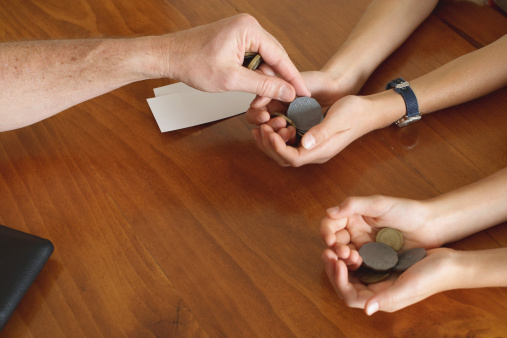5 Ways To Increase Your Chances Of Getting A Loan Approved
It’s pretty much an accepted fact that people who take out loans are people who are short on money. And yet lending institutions prefer (and are more likely) to lend money to people who have money. But people who have money don’t need to be loaned money in the first place. Welcome to the bug-nutso insane world of our economic system!
So, if you want to stand a better chance of getting a loan approved, either go out and get yourself some money (feel free to bang your head against the desk right now), or check out these five ways to increase your chances of acceptance.

Try To Plan Ahead
This is more of an indirect tip, but it’s an essential foundation for most of the other ideas. Unless you need an emergency loan for that sudden, unexpected expense, consider the time-frame of when you’ll want to take the loan out, and then start planning for it. You can then use that time leading up to applying as an opportunity to get your house in order with the points that follow.
Planning ahead also entails putting together your monthly budget in order to see where those loan installment payments will eventually fit in. If you realize that you can handle a larger monthly payment that you initially thought, that could influence a lender into giving you a loan that has a shorter repayment schedule, since that means less risk on their part.
Make Sure Your Credit Score Is Accurate And Up-To-Date
There’s plenty of free credit score offers out there. Sign up for one, then see what it says about you. You’d be surprise, amazed, and sometimes outright appalled at how obsolete and/or wrong some of the information is. For example, a recent auditing of my scores revealed that one credit reporting bureau still had me at an old, low-paying job, and hadn’t updated my mortgage payment history that had recently been updated (for the better) by my lender.
And bear in mind, most changes or corrections take around 30 days to show up on your report.
Don’t Apply For Anything Else
Say you plan on taking out a home improvement loan two months from now to rebuild your back deck before summer starts. Don’t apply for any credit cards or any other sort of borrowing that entails a look at your credit history. This is because every time a prospective lender checks your credit score, it’s a subsequent negative item for that score, which in turn lowers the score even further.
Make Sure Your Current Debt Is Under Control
Speaking of FICO score factors; make sure that you’re keeping up timely payments on your existing debts. Not only that, try drive down your balances as far away from the maximum credit limit as possible. Late payments and red-lining your available credit are two more factors that will drop your credit score, not to mention that they’re two really bad habits to get into.
Lower Your Aim A Bit
The lower your credit score, the less likelihood that major banks or other high-powered financial institutions will lend you any money. Rather than trying to shoot for them, consider smaller institutions such as the local credit union or a reputable online lender. Do some research to make sure that the institution is a legal, solid entity, and not some sketchy operation. Don’t let desperation cloud your judgment and make you take out a bad loan from a bad company.
There are more bits of advice out there, but this represents a good start. If you need some more in-depth wisdom, read “Six Tips For Getting Your Personal Loan Approved”. Loans are sometimes a necessary evil, but if you can minimize the risk of rejection as well as avoid the sneaky pitfalls, it can be a tolerable experience. Who knows? If you pay the loan off promptly, it could affect your credit score positively! Good luck!




